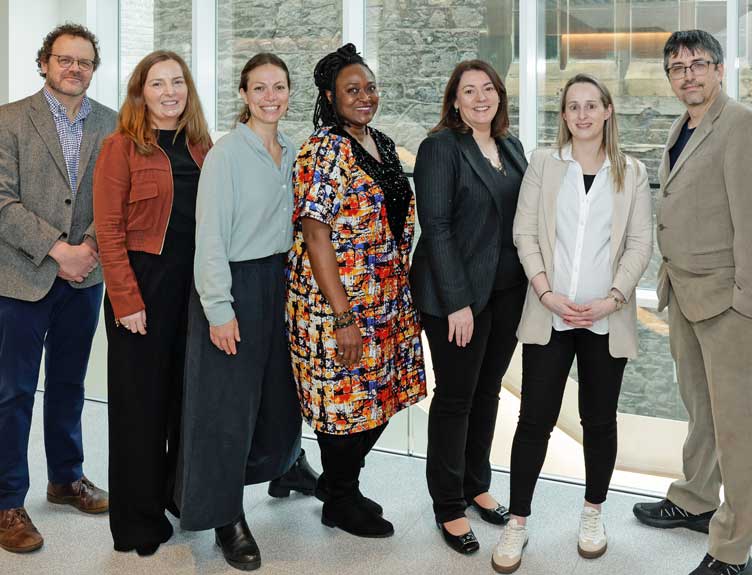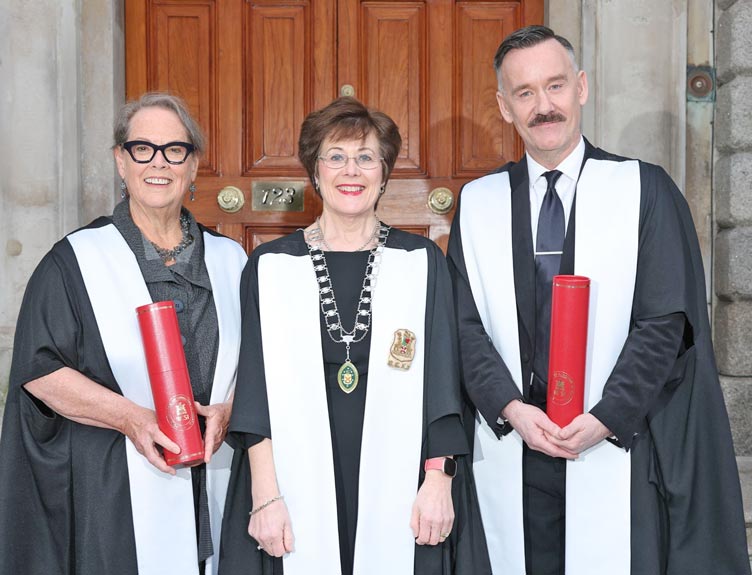RCSI ranked as world number one for ‘Good Health and Well-being' in THE University Impact Rankings
RCSI University of Medicine and Health Sciences has ranked number one in the world for SDG 3 ‘Good Health and Well-being’ in the Times Higher Education (THE) University Impact Rankings 2025. This is the third time RCSI has achieved the world-leading position, having previously ranked number one in 2020 and 2023.
The THE University Impact Rankings recognise universities around the world for their social and economic impact based on the United Nations' 17 Sustainable Development Goals (SDGs). 1,788 universities participated in the SDG 3 ranking, an almost threefold increase since RCSI first achieved the number one position in 2020.
RCSI is also in the top 50 for SDG 17 ‘Partnerships for the Goals’, ranking joint 44 in 2025. RCSI has maintained its overall position in the Impact Ranking at 201-300 in the world out of more than 2,300 universities.
RCSI is Ireland’s only university wholly dedicated to education, training and research in health sciences. Its continued strong performance in this ranking reflects the strength of the university’s partnerships and engagement with national and international networks and communities to have a positive impact on human health and to embed sustainability in the curriculum and across its operations.
Professor Cathal Kelly, RCSI Vice Chancellor, said: “At a time when global universities are under increasing pressure to demonstrate tangible societal value and sustainability, I am incredibly proud of RCSI’s world number one ranking for UNSDG 3. This global leading position is a testament to our drive towards our mission to educate, nurture and discover for the benefit of human health which underpins our commitment to achieving the UNSDGs.
“We place a particular emphasis on nurturing the well-being of our staff and students, we are deeply committed to sustainability through our education, research, outreach and university operations, and to building greater understanding of the relationship between human health and planetary health.
“I am grateful to everyone in the RCSI community our students, academic and professional staff, clinicians, community and health services partners for their efforts and also to the many partners we work with in addressing the global challenges outlined by the UNSDGs, which are more urgent than ever in these turbulent times.”
Phil Baty, Times Higher Education’s chief global affairs officer, said: “The THE Impact Rankings are the world’s only rankings to explore universities’ contribution to each and every one of the United Nations’ 17 SDGs, across the full range of their activities: teaching, research, outreach and stewardship. And this comprehensive analysis clearly shows that universities worldwide are stepping up to help the world take on its most pressing grand challenges, from the climate crisis to delivering economic growth to supporting peace and justice across the world. This huge piece of research highlights the real-world impact that universities make, and their contribution to the public good.
“Our evidence is clear: universities across Europe are leading the way on helping the world to a more sustainable future, taking world-leading positions across a wide range of individual SDGs.”
Driving global health impact and local sustainability
RCSI’s significant contribution to health-focussed research aligned with SDG 3 is a key contributor to the university’s number one ranking with its score in the research pillar of SDG 3 increasing from 84.5 in 2024 to 85.6 in 2025. RCSI’s research publications classified as SDG 3 by SciVal grew by over 10%.
Key initiatives over the past year included the launch of a free continuous professional development (CPD) course to empower health professionals to apply the principles of sustainable healthcare in their own practice to reduce the environmental impact of healthcare.
Nationally and globally, the university's impact is far-reaching. Through the free RCSI MyHealth series, RCSI academics, in partnership with patient advocates, empowered people with science-backed insights on topics including coping strategies for life with cancer and the dangers of cannabis use on young minds. RCSI’s Institute of Global Surgery, in collaboration with the Global Surgery Foundation and the United Nations Institute of Training and Research (UNITAR), supported training in 165 countries through the SURGhub e-learning platform and was recognised as Technological Innovation of the Year at the 2024 Times Higher Education Awards.
Implementation of RCSI’s Climate Action Roadmap, which commits the university to a number of sustainability targets on the journey to net carbon zero by 2050, has continued. In 2024 RCSI was the first Irish university to achieve My Green Lab Certification, the gold standard for laboratory sustainability practices globally for all labs, and achieved its second successive Green Flag from An Taisce for long-term commitment to sustainability.
Local community initiatives included The FEABHAS project, a study in partnership with Sláintecare Healthy Communities that outlined recommendations to reduce inequalities in healthcare among in Dublin city. The Uisce Cliste project, a novel drinking water intervention, improved access to free drinking water and enhanced vital hydration knowledge among Dublin communities.
RCSI is a signatory to the UNSDG Accord and is a member of SDSN Ireland, which is an all-island network of higher education, research, civil society and NGO bodies working together to support the implementation of the SDGs through education, research and engagement and to build capacity through training and the sharing of best practice. RCSI is also a signatory to the Higher Education Authority (HEA) Healthy Campus Charter.
Read our profile on the Times Higher Education World University Rankings website, or learn more about our focus on social and economic impacts here.



